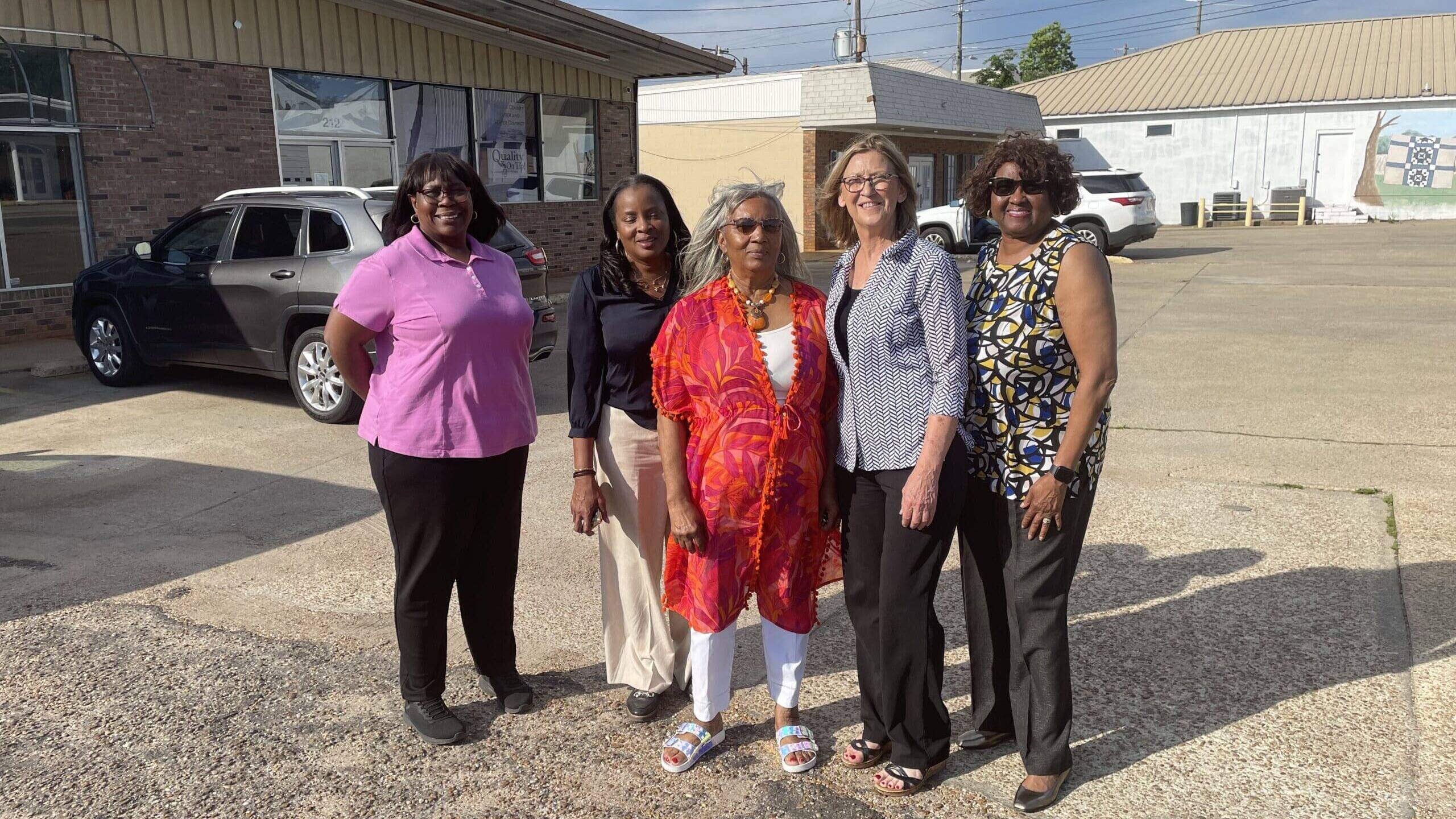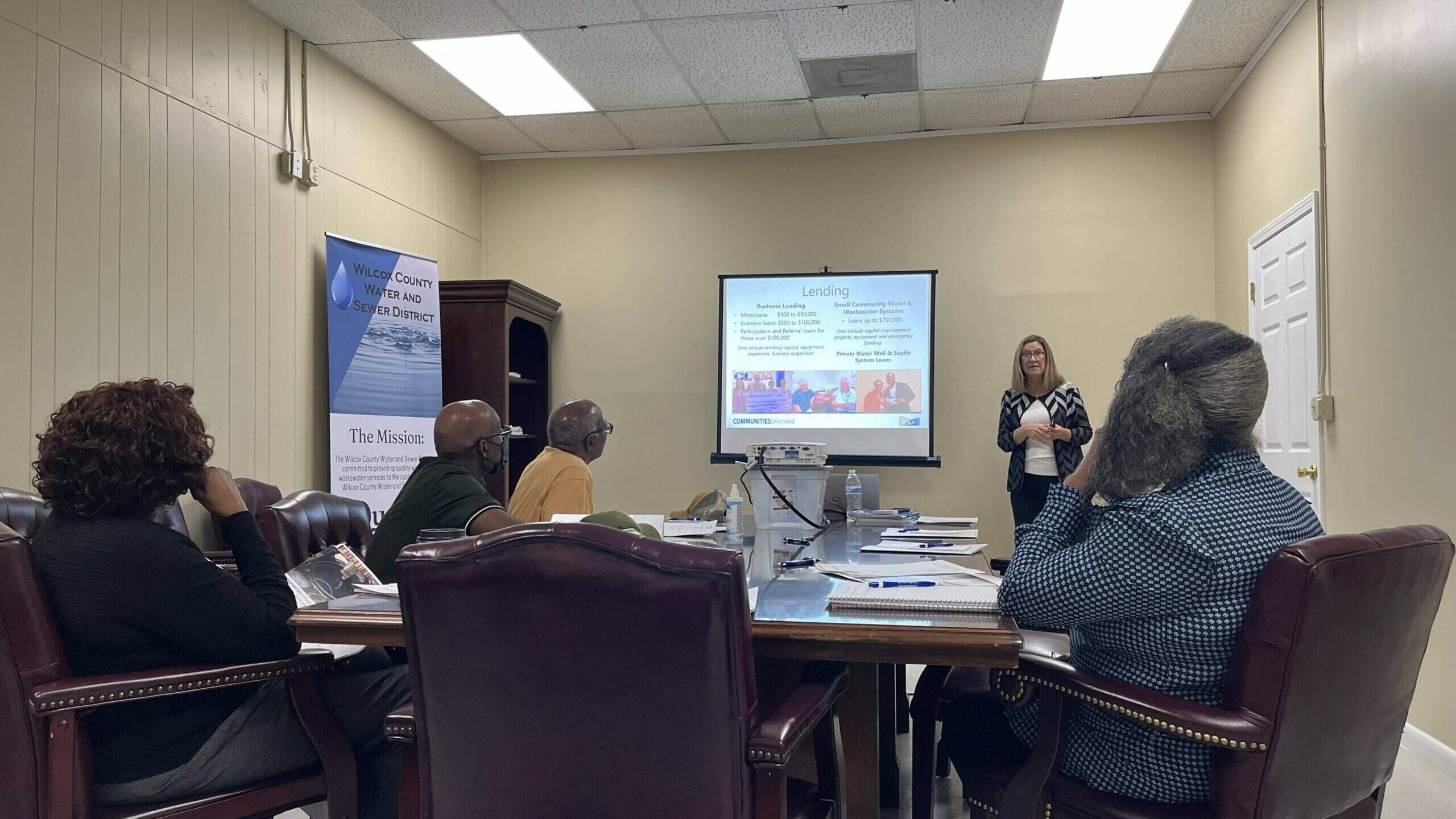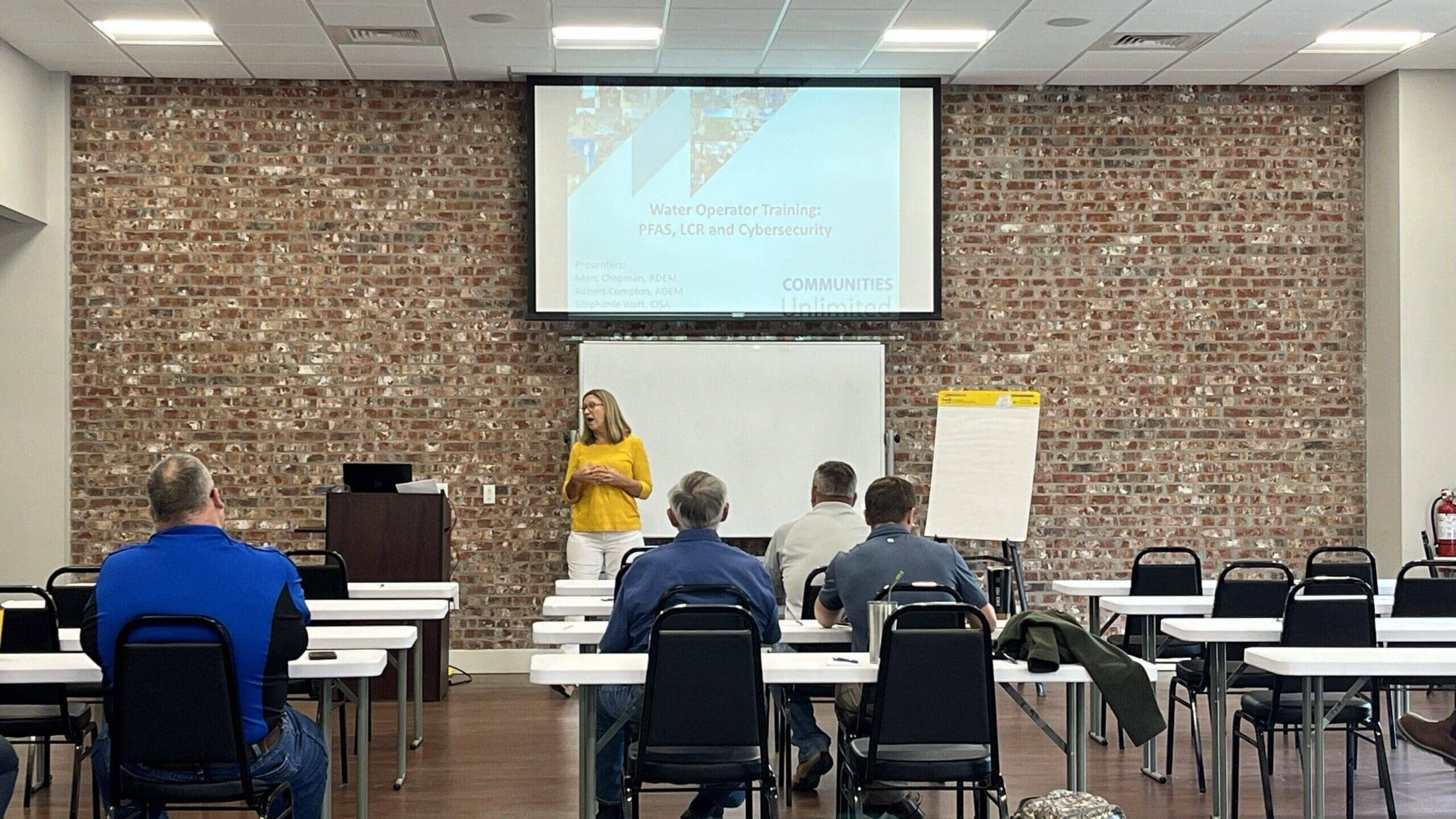Until mid-2024, the Wilcox County Water and Sewer District’s board contracted with a management firm to oversee daily operations, billing, and financial reporting. When the contract ended, the board discovered irregularities in the company’s financial handling and had to assume full responsibility for managing the system — a first in the district’s history.
And the issues were aplenty.
Bills were piling up, lines were breaking faster than they could be fixed, and the board didn’t have the tools or training to manage day-to-day operations.
“We weren’t able to pay our invoices,” said Chairwoman Mattie Dennis. “That was our biggest problem. There were many line breaks waiting to be repaired, and we didn’t have any equipment. We had to contract out all the work to get it done.”
Located in Alabama’s Black Belt, the Wilcox County Water and Sewer District serves roughly 2,200 water connections and 60 wastewater customers across Wilcox, Monroe, and Marengo counties — a rural region near Camden, about halfway between Selma and Monroeville. The system’s board members are appointed by the county commission, and the system provides service to residents in one of the state’s most persistently poor areas.
Help came through a referral from the U.S. Department of Agriculture (USDA), which connected the district with the Community Infrastructure Team at Communities Unlimited (CU).
Rebuilding the Foundation
When CU’s Alabama State Coordinator, Dinah Foreman, first arrived, she started with the basics — helping the board strengthen governance, planning, and financial management. Her Technical, Managerial, and Financial (TMF) assessment guided improvements in internal controls, recordkeeping, and rate alignment, leading to a comprehensive rate study that set the district on a more sustainable path.
“Ms. Dinah came in and gave a class to our directors on their responsibilities — things like accounting and management. A lot of it was new to us. She helped us gain a better understanding of what we needed to do to manage the system properly.”
— Mattie Dennis, Wilcox County Water and Sewer District
Among CU’s biggest impacts were the board training and rate study. The four-hour board training covered regulations, management practices, financial management, and technical issues. CU also hosted a four-hour water operator class focused on regulations, operations, and financial management.
For years, the district also hadn’t raised rates, even as debt payments and wholesale water costs increased. With CU’s assistance, the board analyzed expenses and revenue projections, ultimately adopting a 38.1% rate increase in June 2025.
“That showed us where we stood financially and made it clear that we needed a substantial rate increase to be sustainable,” Dennis said. “We approved and implemented that increase, and since then, our finances have improved a lot.”
The change wasn’t without controversy. When new bills arrived, some residents — many on fixed incomes — expressed frustration and confusion. Local news outlets reported bills exceeding $150 and tense board meetings where customers demanded answers.
Dennis understood their concerns. The district had taken on new obligations, including a $3 million USDA loan for infrastructure improvements, mortgage payments for a new office building, and high costs for purchasing wholesale water from neighboring systems.
To improve communication, Foreman joined Dennis at a town hall meeting to explain the rate study and the district’s financial reality.
“When Dinah came, she used graphics and visual aids to explain it, and that helped customers see the big picture. We still get a few complaints, but not nearly as many as before.”
— Mattie Dennis
Foreman helped residents grasp an essential truth:
“People want the water, but they don’t always realize there’s a cost to keeping it flowing,” Dennis said. “We have to make repairs, do testing, and meet all the requirements from ADEM (Alabama Department of Environmental Management) — and that takes money. Dinah helped our customers understand that connection.”
Building on that foundation, Foreman continues to support the district by updating compliance monitoring plans — including Lead and Copper (LCR), Bacteriological (Bac-T), and Disinfection By-Products (DBP) — and developing new managerial policies and procedures.
Investing in Self-Sufficiency
Despite financial recovery, the district still faced an expensive challenge: every line break required hiring outside contractors.
That changed in 2025 when the district received a $50,000 USDA Community Facilities Technical Assistance and Training (CFTAT) Grant to purchase a mini excavator and utility trailer. With help from CU’s Lending Team — specifically Senior Economic Development Loan Officer Chris Ranniger — Wilcox secured a $28,104 loan at 3% interest through CU’s Revolving Loan Fund (RLF) to provide matching funds and build secure fencing behind the office to store the new equipment.
“It meant everything,” said Dennis. “Now, with this funding, we can buy our own excavator and trailer and stop depending on contractors.”
The change is expected to save both time and money.
“We won’t have to wait for a contractor to come fix a line break,” she added. “Our own staff can handle it. We already have someone trained to operate the excavator.”
A System Reborn
Today, Wilcox County Water and Sewer District operates with renewed confidence and capability. The board meets monthly, follows sound financial practices, and enforces payment policies that had long been ignored.
“Before CU came in, we were struggling — going downhill,” Dennis said. “Since Dinah started helping us, we’ve leveled off. Financially, we’re in a much better place.”
Out of crisis came clarity. What started as a plea for help has transformed into a story of strength and resurgence — a system reborn and ready to sustain its community for years ahead.
“We appreciate the help. Communities Unlimited has made a huge difference for us — financially and operationally.”
— Mattie Dennis




